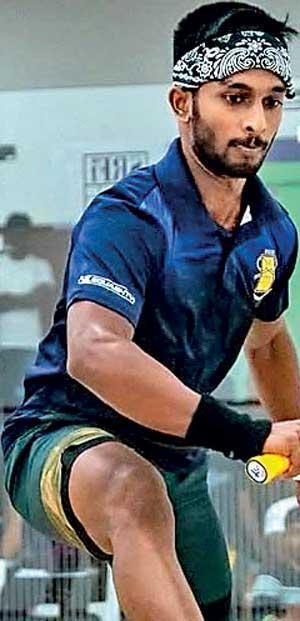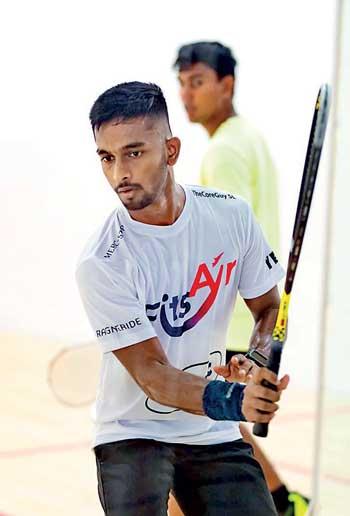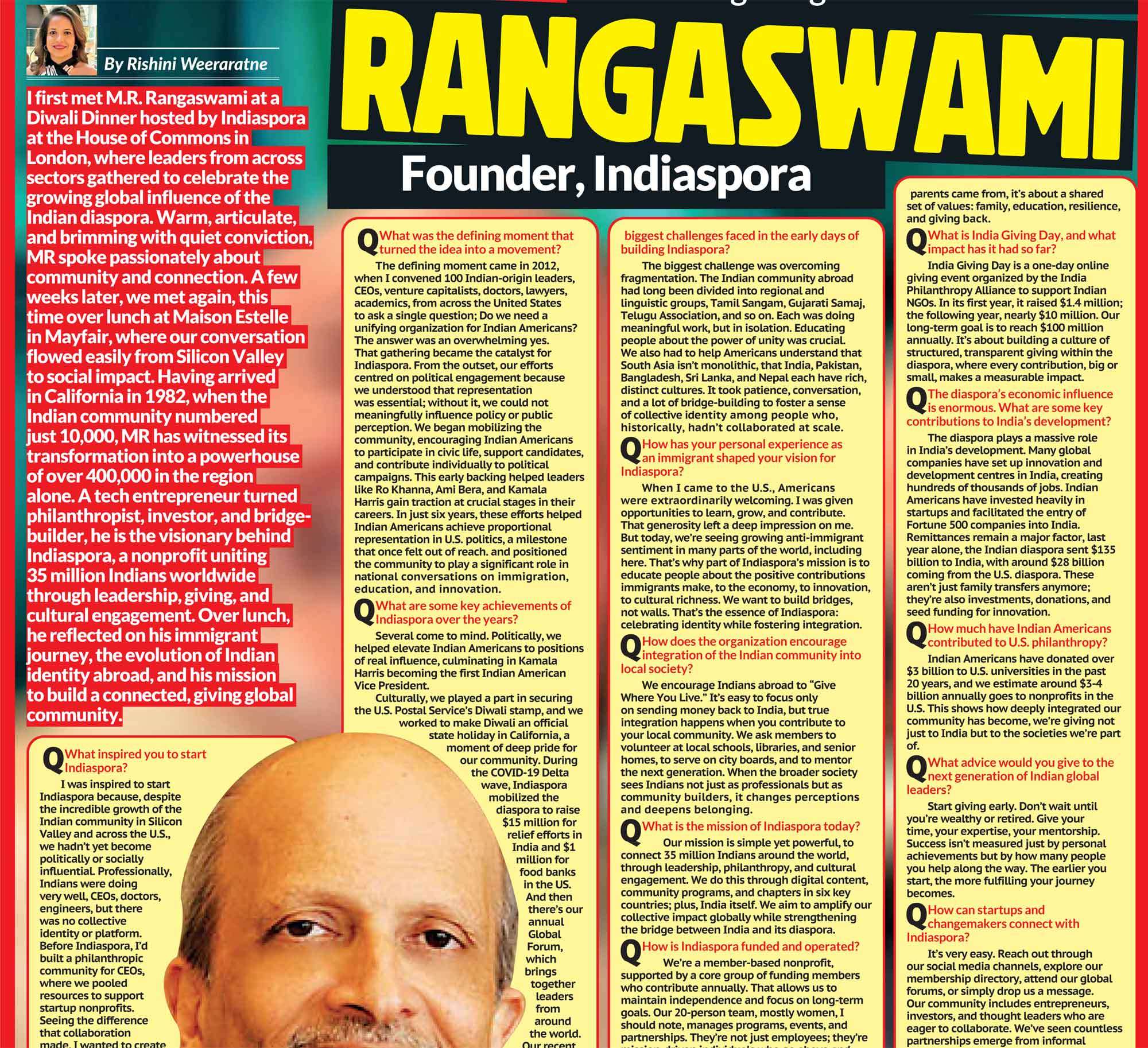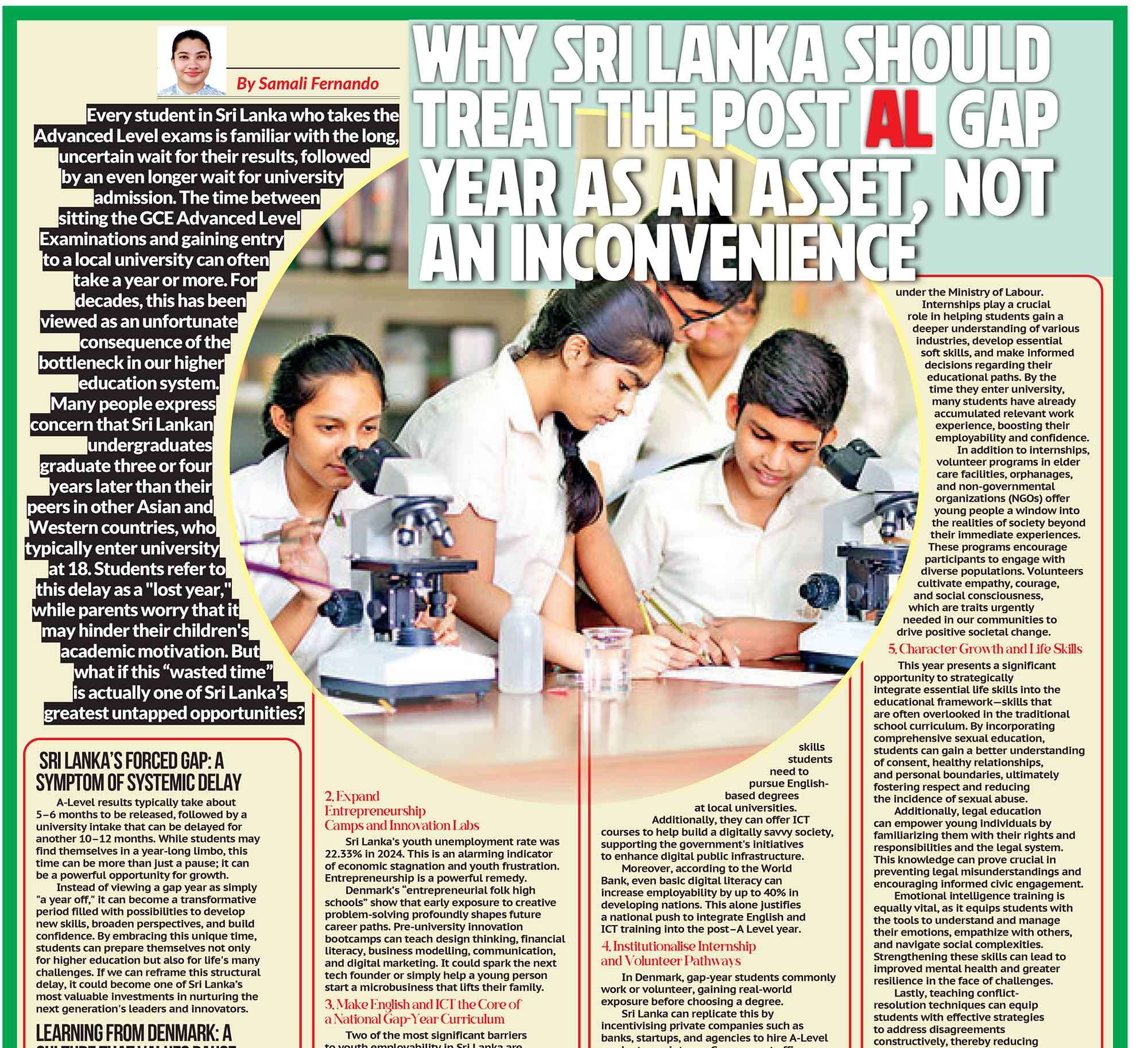In Conversation with Tuwin Herath
 In the fiercely competitive world of professional squash, Sri Lanka is making its presence known through the rising international career of Tuwin Herath. With a career-high world ranking of 316, and a spot among the top 50 players in Asia in 2023, Tuwin has steadily carved out a reputation as one of the island’s most promising squash talents.
In the fiercely competitive world of professional squash, Sri Lanka is making its presence known through the rising international career of Tuwin Herath. With a career-high world ranking of 316, and a spot among the top 50 players in Asia in 2023, Tuwin has steadily carved out a reputation as one of the island’s most promising squash talents.
01.In stadiums filled with roaring crowds, under bright floodlights, or on quiet courts where only the sound of breath and movement can be heard, sport reveals its greatest truth, not in the scores we celebrate, but in the values we uphold.
His milestone year came as he represented Sri Lanka at the Asian Individual Squash Championships in Hong Kong and China, where he competed alongside some of the continent’s best. It was a significant step not just for his personal development, but for Sri Lankan squash as a whole, bringing visibility to the sport from a country still finding its footing on the global stage.
Currently, Tuwin is based in Shanghai, China, where he balances dual roles: continuing his professional journey on the PSA World Tour, while also serving as a squash consultant at Diamond Squash Club, one of the region’s most dynamic squash communities.
“Being in Shanghai gives me the chance to both train and compete at a high level, while also contributing to the development of squash among juniors and recreational players,” says Tuwin. “It’s a balance of growth, mentorship, and ambition.”
Tuwin’s move to China reflects the global nature of squash today, where athletes must combine international exposure with local impact. In addition to his performances on court, he’s becoming a valuable ambassador for Sri  Lankan squash abroad, showing younger players what’s possible with determination and the right opportunities.
Lankan squash abroad, showing younger players what’s possible with determination and the right opportunities.
As he continues to rise through the PSA rankings, his goals are clear:
02.represent Sri Lanka on even larger platforms, inspire the next generation of players, and help grow squash both at home and internationally.
With talent, vision, and relentless drive, Tuwin Herath, is not just a competitor, he’s becoming a symbol of where Sri Lankan squash is heading next.
While modern sport has grown into a global phenomenon, an industry driven by competition, commerce, and the pursuit of excellence, there is a growing recognition that something deeper and more enduring matters just as much: integrity, sportsmanship, and core human values.
As records are broken and new champions emerge, these timeless virtues are what preserve the spirit of sport for future generations. Without them, the game is just performance. With them, sport becomes something greater: a test of character, a symbol of unity, and a force for good in society.
03.Integrity: The Moral Compass of Competition
Integrity is often defined as “doing the right thing, even when no one is watching.” In sport, this concept is tested daily, in silent moments when athletes must choose between gaining an advantage or playing fair.
From admitting a foul, the referee didn’t see to refusing to bend the rules under pressure, integrity is what transforms an athlete from a skilled competitor into a trusted role model. In some sports, such as squash or golf, players self-regulate certain calls. In these moments, integrity isn’t optional, it’s essential.
It is easy to be honest when the stakes are low. But when a game, a title, or a national dream hangs in the balance, that same honesty becomes a true measure of character. And it’s not just about behaviour on the field. Integrity means showing up to training on time, giving full effort, staying drug-free, and being accountable for your actions both in and out of sport. It is a code that athletes carry with them beyond competition.
04.Sportsmanship: Grace in Victory and Dignity in Defeat
Closely linked to integrity is the concept of sportsmanship, respect for your opponents, humility in success, and composure in failure. Sportsmanship turns rivalry into mutual respect. It reminds us that even though we compete, we share a common love for the game.
History is filled with examples of sportsmanship that moved people more than the result itself, a runner helping a fallen competitor across the finish line, a tennis player correcting a favourable call, or a team applauding a rival’s performance. These gestures don't just elevate the athlete; they elevate the sport.
In school tournaments and international championships alike, sportsmanship can leave a lasting impression. A handshake after a tough match, a kind word in defeat, or a quiet apology for an accidental foul, these small acts create big moments of humanity. As athletes rise through the ranks, they often become role models, especially for young people. Sportsmanship ensures they are worthy of that influence.
 05.Why Values Matter More Than Ever
05.Why Values Matter More Than Ever
In today’s hyper-competitive sports landscape, the pressure to succeed is immense. Careers, endorsements, scholarships, and reputations are often on the line. The temptation to win at any cost, whether through performance-enhancing drugs, diving to draw a foul, or undermining opponents has never been greater.
But when values are sacrificed for results, sport begins to lose its meaning. It becomes entertainment, not inspiration. Winning becomes transactional, not transformational.
We’ve seen too many scandals tarnish sports over the years, athletes stripped of medals, teams disqualified, legacies undone. These moments serve as harsh reminders: when integrity is compromised, victories become meaningless.
Conversely, when athletes uphold their values under pressure, their actions become part of sporting legend celebrated not just for skill, but for honour.
06.Teaching Values from the Ground Up
Responsibility for instilling values in sport begins early. Coaches, parents, schools, and federations must see the development of character as equal to the development of technique. A well-rounded athlete is not just one who can win but one who knows what it means to win well. Training programs should include lessons on ethics, emotional control, and respect. Young athletes should be rewarded not only for goals scored or races won, but also for teamwork, honesty, and resilience. Spectators and fans, too, have a role to play. How we react to games how we treat referees, opponents, or players after a loss, teaches children what kind of behaviour is acceptable. If we want to see more athletes with strong values, we must also model those values as communities.
07.The Legacy of Values
Trophies will fade. Records will be broken. But values last.
Ask any retired athlete what they remember most, and many won’t point to a medal. They’ll speak of a tough loss they took with grace, a competitor they came to respect, or a moment they chose honesty over an easy win. Because sport, at its best, is not just a platform for performance. It is a stage for learning about who we are and who we want to be.
08.Conclusion: Keeping the Soul of Sport Alive
Sport has the power to unite nations, inspire millions, and transform lives. But that power only holds if sport maintains its soul grounded in fairness, integrity, and respect.
Whether it’s a child learning to dribble for the first time, or a professional playing under the global spotlight, the values learned on the field often echo far beyond it. In the end, it’s not just how fast you ran, how high you jumped, or how many goals you scored. It’s how you carried yourself, how you played the game, treated your rivals, and honoured your sport.
Because long after the scoreboard is forgotten, the legacy of integrity remains. Scan the QR code to listen to the full podcast, as we sit down with Tuwin Herath, a professional squash player whose journey extends far beyond the court. In this candid conversation, Tuwin opens up about the realities of life as a Sri Lankan athlete competing on the international stage the challenges of balancing passion with financial uncertainty, and the narrow margins between progress and setback.
We delve into his new chapter in Shanghai, his ambitions for both personal growth and the future of squash in Sri Lanka, and most importantly, the core values that continue to guide him. In an era where sports are increasingly commercialized and success is often measured by medals and money, Tuwin reminds us of the timeless importance of integrity, discipline, and sportsmanship, especially when the odds are stacked, and the path forward is unclear. This isn’t just a conversation about squash, it’s a reflection on character, resilience, and what it really means to represent your country with honour. Tune in for an inspiring listen.












